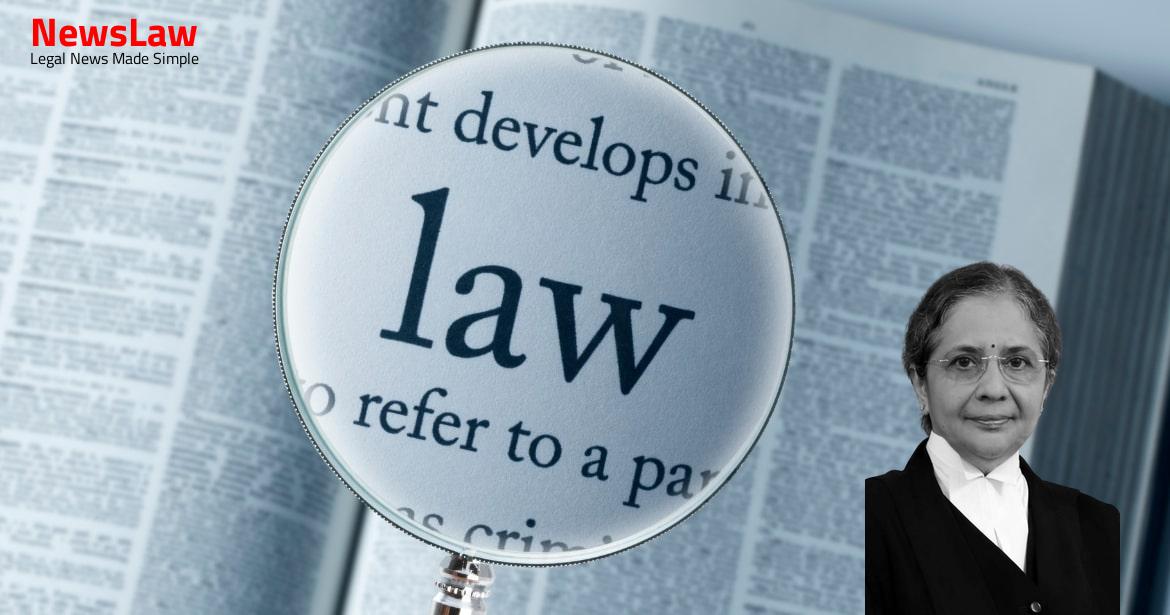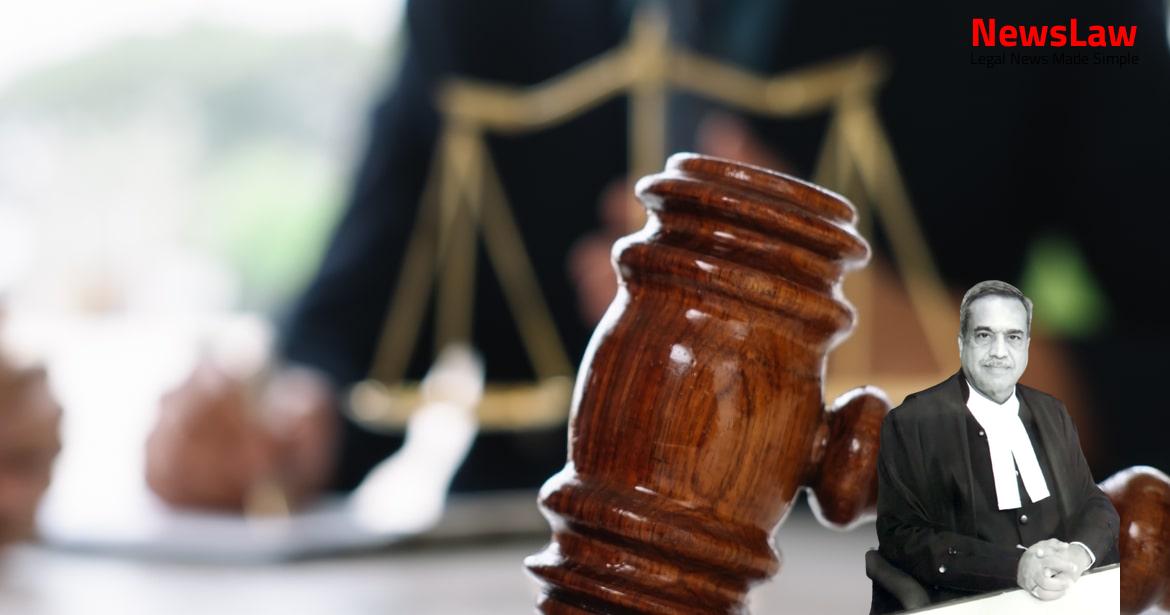The impugned judgment and order dated 13.07.2018 passed by the High Court of Madhya Pradesh, Bench at Gwalior in Criminal Appeal
Also Read: https://newslaw.in/case-type/civil/regularization-of-village-level-workers-in-tamil-nadu/
No 70/2000 has been sought to be challenged by the petitioner-accused by way of present petition.
The Sessions Court after appreciating the evidence on record convicted the petitioner-Ramgopal for the charged offence under Section 302 IPC, however acquitted the other three accused giving 2 them benefit of doubt.
According to him, the courts below have committed an error in convicting the petitioner merely on the theory of “last seen together”, however there was a big time gap between the time when the petitioner was lastly seen with the deceased and the time when the dead body of the deceased was recovered.
Khurshid has placed heavy reliance on the decision of this Court in the case of Padala Veera Reddy vs State of Andhra Pradesh and others, in case of Shahaja alias Shahajan Ismail Mohd.
Parmar appearing for the respondent-State submitted that there being concurrent findings of the guilt recorded by the courts below against the petitioner, this Court should not interfere with the same. Hence, the death of the deceased Pratap Singh had taken place during the night hours of 19 and 20 December,1995, and that the petitioner was lastly seen with the deceased on the previous evening. Of course, Section 106 is certainly not intended 5 to relieve the prosecution of its duty to prove the guilt of the accused, nonetheless it is also equally settled legal position that if the accused does not throw any light upon the facts which are proved to be within his special knowledge, in view of Section 106 of the Evidence Act, such failure on the part of the accused may be used against the accused as it may provide an additional link in the chain of circumstances required to be proved against him. Having observed so, it is crucial to note that the reasonableness of the explanation offered by the accused as to how and when he/she parted company with the deceased has a bearing on the effect of the last seen in a case.
Section 106 only lays down the rule that when the accused does not throw any light upon facts which are specially within his/her knowledge and which cannot support any theory or hypothesis compatible with his innocence, the court can consider his failure to adduce an explanation as an additional link which completes the chain of incriminating circumstances.”
In Satpal Vs.
But when it is coupled with other circumstances such as the time when the deceased was last seen with the accused, and the recovery of the corpse being in very close proximity of time, the accused owes an explanation under Section 106 of the Evidence Act with regard to the circumstances 7 under which death may have taken place. Each case will therefore have to be examined on its own facts for invocation of the doctrine.”
Also Read: https://newslaw.in/case-type/civil/judgment-on-execution-of-lease-deed-for-remaining-land/
In view of the afore-stated legal position, it is discernible that though the last seen theory as propounded by the prosecution in a case based on circumstantial evidence may be a weak kind of evidence by itself to base conviction solely on such theory, when the said theory is proved coupled with other circumstances such as the time when the deceased was last seen with the accused, and the recovery of the corpse being in very close proximity of time, the accused does owe an explanation under Section 106 of the Evidence Act with regard to the circumstances under which death might have taken place.
Case Title: RAM GOPAL Vs. THE STATE OF MADHYA PRADESH (2023 INSC 133)
Case Number: SLP(Crl) No.-009221 / 2018



